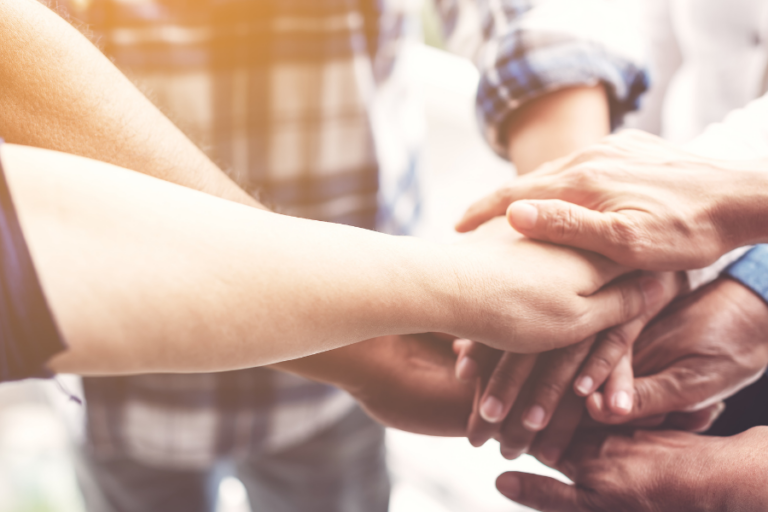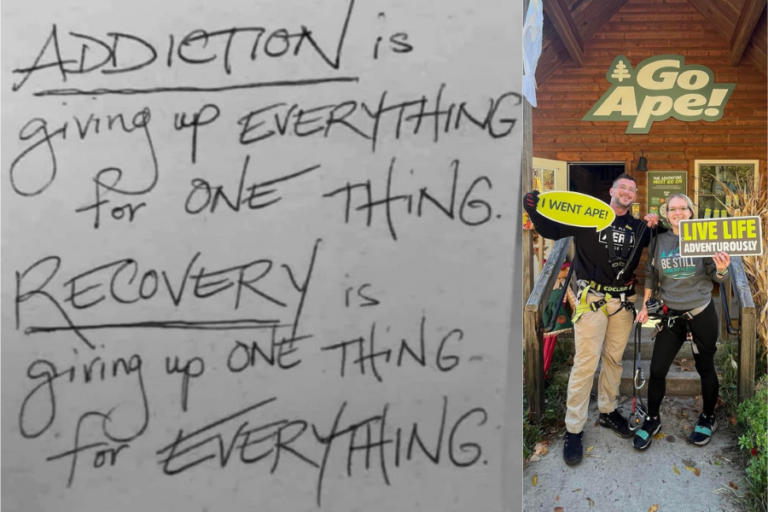By John, CPSP, CCHW, Recovery Coach
Disclaimer: The following is John’s personal experience of what a normal day as a Recovery Coach can look like. He notes each day is different, some days meeting with more clients than others. His goal remains the same, to be helpful and of service to each person he interacts with, meeting people where they are at to help them get to where they want to be.
Most days start out like any other—a quick cup of coffee, a deep breath, and a glance at the calendar to see who I’ll be working with today. But if there’s one thing I’ve learned as a peer recovery coach, it’s that no two days are ever the same. Recovery is not a one-size-fits-all journey. It’s personal, unpredictable, and often messy. And so, every day, I strap in for the ride.
My day begins:
A call from a client who had been doing well for weeks but was now teetering on the edge of relapse. I can hear the exhaustion in their voice, the weight of trying so hard to stay afloat. We talk through the urge, break it down, and I remind them that it’s okay to feel tired. Recovery is heavy, and some days, just getting through is the victory. We end the call on a hopeful note, but I can still feel the lingering uncertainty on my end. Did I say enough? Did I really help? These are the questions that stick around long after the call ends.
By midday:
I’m meeting with someone fresh out of detox. There’s a certain energy that comes with those early days—hope mixed with fear, determination with doubt. Their story is unique, as all of them are, and it’s my job to listen, really listen, and try to meet them where they are. It’s humbling to witness someone’s first steps on this path. I see myself in them, the same fears and sparks of hope that maybe, just maybe, this time will be different. Then, there are the quieter moments—the text messages that go unanswered, the no-shows, the clients who stop reaching out. These are the hard parts, the moments when I feel helpless. It’s easy to question if I’m making any difference at all. I’ve learned that part of this work is accepting that I can’t fix everything or everyone. Sometimes, people aren’t ready, and that’s okay. I must remind myself that it’s not about me, it’s about being there when they are ready. The emotional toll is real. It’s not just their pain I carry, but the echoes of my own journey that resonate with each person I meet. There are days when I feel like I’m not doing enough. But then there are the wins—the little victories, the breakthroughs, the moments when someone realizes they’re stronger than they thought. Those moments make it all worth it.
As the day winds down:
I reflect on the people I’ve connected with, and the ones I couldn’t quite reach. I think about the client who’s been sober for six months and is starting to rebuild their life and the one who’s still trying to find their footing. Recovery looks different for everyone, and my role is to honor that, to support it, and to hold space for whatever it looks like today, tomorrow, and the next day. Being a peer recovery coach isn’t easy, and it isn’t glamorous. It’s raw, uncut, and real. It’s being in the trenches with people, walking alongside them through their darkest days and their brightest ones. It’s about showing up, over and over again, even when it’s hard because I know how much it matters.
At the end of the day, I’m grateful for the chance to do this work. For every up and down, every emotional challenge, and every unique journey I get to be a part of. Because recovery is not just about staying sober; it’s about finding a way to live, and helping others find their way too.
Are you battling addiction and looking for support? Holon Health can help. You can enroll today in just 5 minutes. Want to join John and pursue a career that makes a difference? Apply to open positions.

